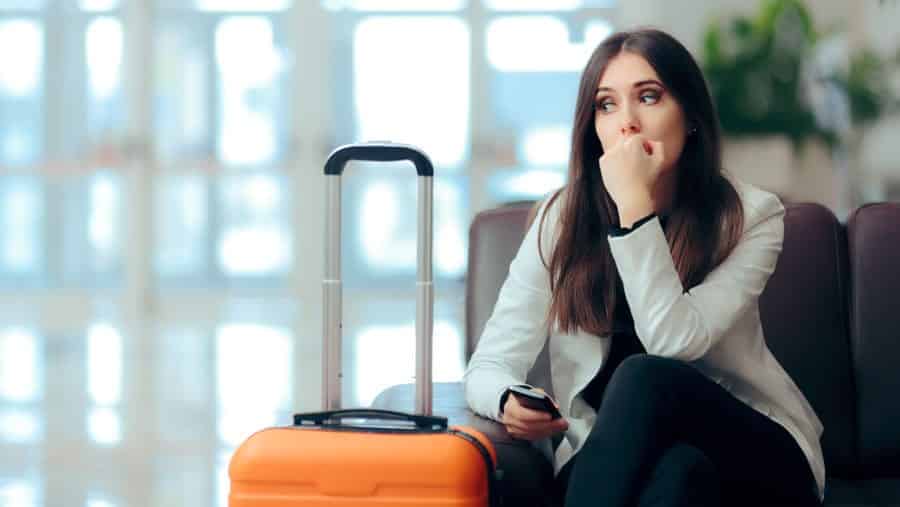When you first get sober, a lot will change in your life. It just comes with the territory. As they say, “nothing changes if nothing changes”! Going to rehab or getting clean through AA will force you to perceive life in new ways. You’ll probably practice employing new coping methods, reevaluate your deepest desires and fears, and rethink your daily choices.
However, be aware that certain changes that occur when you first get clean and sober could be highly challenging. Either way, if you stick with sobriety and lean on your support network, it’ll pay off in the long term. Read on to learn more about what could happen if you decide to choose sobriety or enter an inpatient treatment center, such as Hotel California by the Sea

Hotel California by the Sea doesn’t take a one-size-fits-all approach to treat our clients. Therefore, you may not experience all of the following occurrences when you attend rehab. Similarly, your treatment team may prescribe different treatment modalities to you than what is mentioned here. Either way, read more to learn about the changes you or your loved one could expect while attending drug rehab.
Hotel California by the Sea offers flexible programs for people looking to get sober.
You Might Lose Friends
We know – it’s not the most encouraging start to our list. But you might lose some friends when you first get sober, and this isn’t necessarily a bad thing.
When you’re in the thick of massive addiction, likely, many people in your life who support your habits aren’t real friends behaving with your best interest in mind. Many people who are addicted to drugs seek out others who are also addicted, commonly referred to as “running buddies” or “party friends”.
But when you get sober at a reputable addiction treatment center, many of these friends might not agree with your lifestyle change or support your sobriety. Sometimes choosing to change your life can make others feel insecure about their habits or confused as to why you’re changing in the first place.
However, staying sober is one of the most important parts surrounding yourself with people who are supportive of your new lifestyle changes. This means gathering a dense support group around you that will help you take the high road at every crossroads of your life, and stay sober through joy, pain, defeat, and triumph.
Real friends lift you up and support your personal decisions for betterment. They want the best for you – whatever that is. Remember that.
You’ll Gain Some AWESOME Sober Friends
On the bright side, you’ll gain a plethora of amazing, supportive, and like-minded friends when you choose sobriety. This community will support your goals for living a sober life and share in your celebration of change and self-improvement.

These sober friends will share common goals with you, and may even become closer with you than some family members. Recovering addicts are some of the most remarkable, creative, intelligent, and resourceful people (just our opinion)! It’s likely you’ll find a haven in the individuals you meet who are going through similar experiences and trudging through the more uncomfortable and more challenging addiction recovery times.
Emotions Might Feel Magnified
Many people use drugs and alcohol to numb their feelings. Whether they are trying to cope with grief, stress, or even joy.
People in early recovery tend to understand what it means to truly feel your feelings again – and it isn’t always a walk in the park. Grief may arise. You might get a taste of underlying depression or see symptoms of co-occurring mental health disorders occur.
However, you might also witness that you can feel pure joy again, have that “sparkle” back in your eye, and experience that deep “belly laugh” once again.
Your emotional spectrum may expand once you get sober, and this is okay. The key here is to make sure you’re surrounded by a fantastic support network full of people who want the absolute best for you and help you deal with anything as a recovering sober person.

You Might Experience Post-Acute Withdrawal Syndrome
Post-Acute Withdrawal Syndrome (PAWS) is an extended form of physical withdrawal. If you were physically dependent on a substance, you might experience mild-to-severe initial withdrawal symptoms. For example, those who detox from heroin may experience flu symptoms, nausea, sweating, and muscle cramps.
Besides this initial physical withdrawal, many people experience prolonged PAWS. According to the Semel Institute of Neuroscience and Human Behavior, people recovering from drugs or alcohol may experience some of these symptoms beyond their initial withdrawal period:
- Depressed mood
- Anxiety
- Mood fluctuations
- Panicky feelings
- Sleep disturbances and irregular sleeping patterns
- Increased sensitivity to stressors and other triggers
- Cravings for drug of choice
Although the direct cause of PAWs isn’t known, many researchers believe that this condition results from the physiological changes that occur when someone is physically dependent on drugs or alcohol. Physical dependence causes changes in brain chemicals and neurotransmitter communication patterns.
When the brain adjusts to having a foreign substance in its system, removing it abruptly will wreak havoc on the body. Sometimes, it takes time for the body to adjust to the removal of a foreign substance. Remember, if you’re experiencing distressing symptoms after you get sober, this too shall pass! If you need immediate assistance, be sure to reach out to an addiction hotline or contact Hotel California by the Sea so we can help direct you to the right spot to seek help.
Your Weight May Fluctuate
Here’s one of the less-than-fun aspects of getting sober discussed by tons of recovering addicts and alcoholics. There’s certainly no spot in the DSM-5 that talks about gaining weight as a result of sobriety – that’s for sure. However, tons of people who get clean tend to experience weight gain when they first stop using their drug of choice.
There are plenty of reasons that your weight can fluctuate when you’re in early sobriety. First and foremost, it’s easy to replace old addictions with new ones, like sugar addictions. (This is why Overeaters Anonymous exists!) Sometimes, people may turn to food to help cope with the new, distressing emotions they’re experiencing in their early clean time.
Second, there is also a possibility that you stopped taking care of yourself while drinking or using drugs, or that your drinking or drugs made you less hungry. Inevitably, a suppressed appetite may lead to weight loss during your addiction. On the contrary, when you get sober it’s possible you’ll experience the rebound effects of your previous weight loss.
Weight gain or loss doesn’t happen to everyone that gets sober. But if you do experience weight fluctuations, remember to be gentle on yourself! It takes time to reach a balanced, healthy state after getting sober.
You Might Participate In Society Again
When you’re using, you tend to, well, stop being a functioning member of society. Addiction tends to make people very self-focused, and less aware about what is going on around them. It’s part of the deal. When you get clean, you might find yourself caring more about current events and paying attention to everything that’s happening around you.

It’s possible you’ll find yourself delving deep into that new book after you get sober, or dipping your toes into a brand new hobby. You might suddenly get the urge to volunteer for your local homeless shelter. Or, maybe you’ll discover a piece of yourself – an old pastime – that was left behind after your addiction took over.
Either way, part of recovery is rejoining a community, rediscovering parts of yourself, finding new parts of yourself, and avoiding isolation. It’s likely you’ll enjoy being a functioning member of society again, with time.
You Get To Be Of Service
One of the coolest parts about recovering from a substance use disorder is that you get to help other people do the same. No one can relate to another person recovering from substance abuse as well as someone who is recovering from substance abuse themselves!
As time goes on and you gain more sober time, you’ll witness what it’s like to be a helpful hand to other people who are suffering or in need of support. It’s in the absence of ego that happens when you help another person (as opposed to thinking of yourself) where the real magic of sobriety happens.
Life in recovery isn’t always easy, but it sure is worth it!
